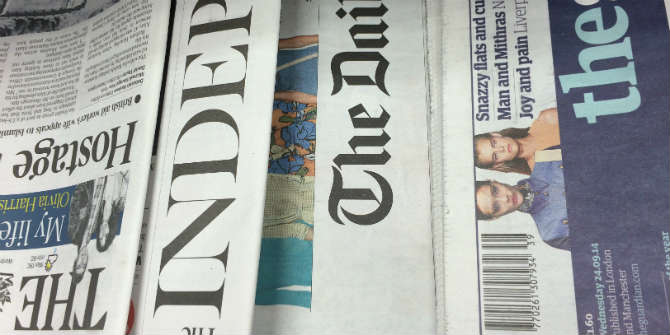 Usually when I hear the word “rally” I think of vague but fervent slogans, lots of emotions and energy geared at psyching people up for battle. So it was a bit surprising that the “Rally for Media Reform” was not a rage fest of anti-Murdoch battle cries. There was enough of a “rallying the troops” atmosphere to distinguish it clearly from the multitude of roundtables and panel discussions related to the Leveson Inquiry, but there were also concrete demands of the Inquiry and proposals for what should replace the PCC coming from two very different categories of speakers.
Usually when I hear the word “rally” I think of vague but fervent slogans, lots of emotions and energy geared at psyching people up for battle. So it was a bit surprising that the “Rally for Media Reform” was not a rage fest of anti-Murdoch battle cries. There was enough of a “rallying the troops” atmosphere to distinguish it clearly from the multitude of roundtables and panel discussions related to the Leveson Inquiry, but there were also concrete demands of the Inquiry and proposals for what should replace the PCC coming from two very different categories of speakers.

The speakers list, of course, included the obligatory mix of politicians from the major parties, but the rest came from two distinct groups. In the first group were those often referred to as the victims. The word victim seems an inadequate label, though. It is more appropriate to think of them as the people who did not seek out this battle, but when it came to them, decided to fight. Their fight is does not seem about changing things for them as individuals. Nothing will undo the damage done to the lives of Jacqui Hames and Mary-Ellen Field. Hugh Grant knows that even if they can no longer resort to illegal means, the tabloid press is never going to leave him alone.
Neither was their fight a generic emotional cry for change. Both Hames and Grant called for Lord Justice Leveson to also look into the evidence he has deemed “historical” such as the data on the use of private detective Steven Whittamore by the tabloid press, as, Grant argued it demonstrates that the problems of illegal activity was much more widespread than News International. Grant also insisted Leveson look into is whether this kind of illegal activity is an essential part of the tabloid business model, and whether that was one reason the Information Commissioners report on press dealings with Whittamore was ignored. That is not just a question of exposing the truth about the past. After all, if tabloids cannot survive by operating legally, perhaps the Inquiry needs look into possible state-sponsored incentives or press subsidies, and we all need to know how far policy makers will go if there is potential to kill the industry.
The other speakers at the Rally were those who have been seeking out this battle for some time, each from his or her own position. These are people such as: Martin Moore from Media Standards Trust and the Hacked Off Campaign; Jacqui Hunt from Equality Now; human rights lawyer Imran Khan; MP Tom Watson, long-time campaigner against the Murdoch empire; and academic James Curran, who literally wrote the book – several actually – about the media’s relationship to democracy, society, and power. The speakers from this group have wanted to see change in the UK media since well before the hacking of Millie Dowler’s phone and all that ensued.
Who knows when or even if any of them would have had a chance of being heard to the extent that they are now if it were not for the hacking scandal. Media experts are quite familiar with the arguments for better controls on concentration of ownership in the media and a self or co-regulatory mechanism that will be obligatory and deal with unethical practice beyond individual abuses. But now these arguments are getting outside of university or civil society panel discussions, and the time is right for some of them to make their way into policy. The arguments of the second group carry more weight now because they are united, and because they are joined by the first group, whose personal experience and specific calls for just and effective solutions add urgency, legitimacy, and publicity. Political leaders are now listening. Because of the Leveson Inquiry, they have to.
The Rally for Media Reform was organised by the Co-ordinating Committee for Media Reform and the Hacked Off Campaign on 17 May, 2012



